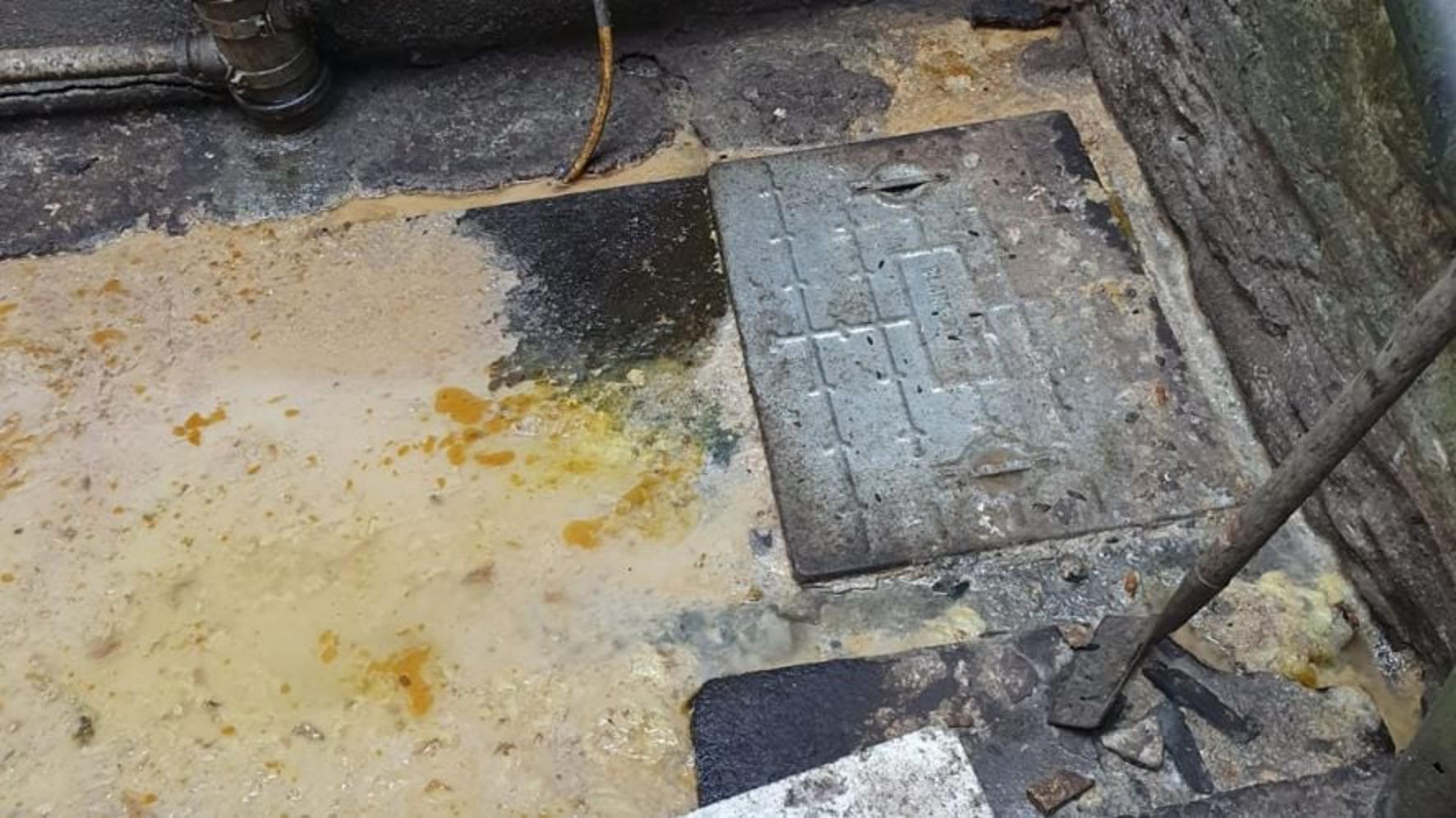Over 2,200 businesses that deal with food in Devon and Cornwall have been supported by South West Water to help prevent fat, oils and grease (FOG) from entering the sewers.
With Unblocktober coming to a close and Christmas just around the corner, South West Water, is highlighting practical steps that everyone can take to keep drains clear, prevent flooding, and protect the environment.
Helping businesses to manage FOG
In the last year alone, South West Water cleared over 7,000 avoidable blockages – with three-quarters caused predominantly by just two things: wet wipes and fats.
When FOG mixes with items like wet wipes, sanitary products, and food waste that is flushed or poured down drains, it can form stubborn blockages.
If left unchecked, these blockages can grow into giant, concrete-like fatbergs – the most extreme form of sewer blockage. These blockages can cause flooding, unpleasant odours, pollution in rivers and seas, as well as costly damage to the sewer network.
Through its partnership with Environmental Compliance and Services (ECAS), South West Water has supported 2,203 food service establishments to manage FOG responsibly.
ECAS works on behalf of South West Water to support businesses, both proactively by visiting food service establishments which are in known blockage hotspots, and reactively when problems like blockages are reported to or identified by South West Water’s teams.
Environmental Enforcement Officers visit businesses across the South West and talk to kitchen staff about their daily practices and how they’re currently disposing of their FOG.
ECAS will then often recommend actions that the business needs to take going forward. For example, they might need to install grease-trapping equipment, improve their cooking oil storage or change their daily kitchen practices.
Marc Downes, Operational Performance Manager at ECAS, said: Sometimes we’ll speak to food businesses about a blockage that’s not necessarily affecting their premises but has been caused by FOG escaping from their kitchen. The FOG has travelled in the sewer network from their sinks and drains, causing problems further downstream. If everyone does their bit, we protect communities and the environment.”
How businesses and customers can reduce FOG
There are lots of small, daily actions that businesses dealing with food can take to reduce the risk of blockages, including:
- Installing, cleaning, and maintaining properly sized grease-trapping equipment so it does its job properly
- Storing and recycling oil safely. Used cooking oil should be collected by a licensed waste carrier. Many suppliers will recycle this into biofuel, so it’s a win-win.
- Training kitchen staff to ensure everyone knows the right habits, for example - wiping pans into a bin before washing, using sink strainers to catch peelings and scraps, never allowing fat, oil and grease down drains or sinks and putting wipes, kitchen roll and other non-flushable items in the bin.
But households also play an equally important role in keeping sewers flowing smoothly.
As part of its ‘Bin It Don’t Block It’ campaign, South West Water has shared some quick, easy tips to help people to make small changes at home to help prevent blocked drains.
- Only flush the 3 Ps down the loo: pee, poo, and paper. Put wipes, even so-called “flushable” ones, in the bin.
- Never pour fats, oils, or grease down the sink. Instead, collect your grease or oil in a homemade fat trap like a jar or tub and throw it in the bin once cooled.
- Put food scraps and coffee grounds in the bin or in a food caddy.
- Dry wipe dishes before washing them to reduce grease entering the drains.
Richard Price, Managing Director for Wastewater Services at South West Water, said: “Preventing blockages benefits the whole community. It keeps our rivers and seas clean and prevents flooding and disruption for homes and businesses across the region.
“That’s why we are asking customers and business owners across the South West to ‘Bin It, Don’t Block It’. Whether you're washing your dishes after a family dinner at home or disposing of grease from your restaurant, getting simple good habits in place can have a huge impact by helping to reduce blockages and protect the environment.”
For more information about Bin It Don’t Block It visit www.southwestwater.co.uk/household/your-services/your-wastewater/bin-it-dont-block-it.
